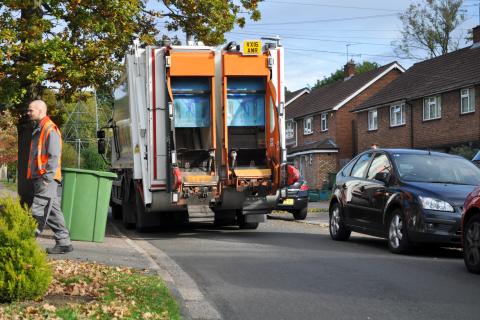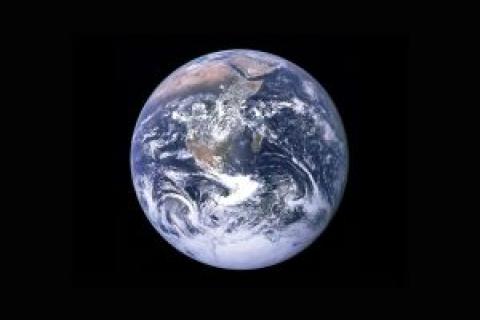Circular Economy, Waste & Food - Our Actions
The waste hierarchy principles to reduce first, then reuse and finally recycle have been promoted for many years
and over 60% of the District’s household waste is recycled.
Recycling saves energy and money by avoiding the need to use new materials to make products. It also prevents waste littering our natural environment.
Reducing waste isn’t just about disposing of it sustainably; it is also about the way we use and consume products. A
circular economy ensures that nothing goes to waste, and everything has value, keeping materials and product in use
for as long as possible.
Food production is a major contributor to carbon emissions in the UK. Changing diets to eat less meat and better quality, more local and seasonal produce can have large positive impacts on emissions, and on land-use by freeing up large amounts of land for other uses.
We are working hard to reduce waste across the District as well as across our own services. We are focused on ensuring circular economy principles are embedded into processes. Below are the main objectives for Waste, Circular Economy and Food that we are working towards in our Sustainability and Climate Crisis Strategy 2024-27 along with our key achievements so far.
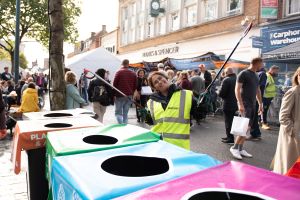 Seek to reduce overall waste from the Council, reusing where possible and increasing our levels of recycling.
Seek to reduce overall waste from the Council, reusing where possible and increasing our levels of recycling.
- CEWF1 Reduce the levels of waste from Council assets and events.
What we will do:
- Explore the feasibility and introduction of food waste recycling at Council events and markets.
- Review and update the Council's Plastic Free Action Plan to ensure ongoing progress in reducing plastic waste.
- Appoint a contractor responsible for a cost-neutral, profit or externally funded pallet and crate takeback scheme.
- Review the current Market waste recycling facilities with a view to developing a strategy to significantly improve the % of Market waste that is recycled.
- Improve the recycling of waste produced from the operation of Council assets to a minimum of 60%.
Achievements so far:
- Recycling facilities are in place at our offices for cans, plastics bottles, food containers and films, cans, paper, card, electrical items, glass bottles and jars.
- Single Use Plastics Policy and Action Plan has been updated and is now being implemented.
- Bottle refill fountains have been installed to Verulamium park, Clarence Park and Napsbury Pavillion in London Colney.
- Food waste recycling has been introduced to the Council's markets.
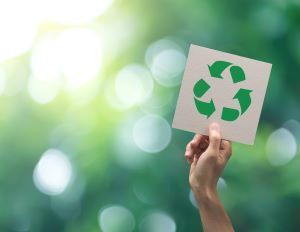 Promote circular economy principles in our processes, ensuring we reuse and repurpose where possible.
Promote circular economy principles in our processes, ensuring we reuse and repurpose where possible.
- CEWF2 Ensure Circular Economy principles are embedded into all Council processes, procurement and projects.
What we will do:
- Aim for Council-led developments to integrate circular economy and whole life-cycle principles of eliminating waste and pollution, retaining material value and utilising local supply chains when practical.
Achievements so far:
- We request Waste Management Plans from all current new-build projects to assess existing or proposed circular economy principles.
- New schemes in development will be assessed for whole life cycle impact
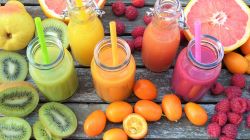 Provide a range of sustainable food options and prioritise local producers and suppliers
Provide a range of sustainable food options and prioritise local producers and suppliers
- CEWF3 Provide and promote sustainable and inclusive food options at Council sites and events.
What we will do:
- Provide a range of sustainable food options at Council-operated sites and events prioritising local producers and suppliers.
Achievements so far:
- Caterers in Council buildings are required to provide sustainable menus within their cafes.
- Market and events caterers are required to detail their sustainable food options and we provide guidance to encourage the to provide one vegan option where possible.
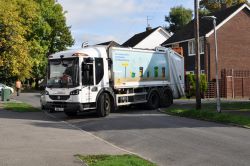
Work with our community to promote the waste hierarchy, help educate residents to increase recycling and reduce waste.
- CEWF4 Work with partners and communities to reduce waste and increase recycling across the District.
What we will do:
- Develop and deliver a comprehensive Litter Strategy and continue to support community litter picks.
- Continue to explore options for maximising recycling across the public realm.
- Develop and implement a Flats Recycling Strategy to increase recycling collection from all flats.
- Work with other Councils, landowners and the Police to reduce fly-tipping.
- Widely promote local recycling facilities and the waste hierarchy to reduce waste and overcome barriers to participation.
- Support the work of the HCC Education Officer in promoting positive waste management behaviours within school curriculums and ensure as many schools as possible have access to recycling infrastructure.
Achievements so far:
- St Albans City and District residents are in the top 5 highest recyclers in the country.
- The Council provide guidance and equipment for community litter-picking.
- Litter bin strategy has been approved which includes a review of bin placement.
- Working with managing agents to ensure residents in blocks of flats are aware of recycling facilities and that bin areas are fit for purpose.
- Recycling Guide is sent to new households when they receive their first Council tax Bill.
- Recycling Team review Planning Applications for new flats to ensure there is sufficient space allocated for waste facilities.
- Working with Rural Police Crime Team and local Farmers to address Flytipping. This has increased enforcement activity. In the period Jan-Oct 2023 52 Fixed Penalty Notices were issued. Additional solar camera also purchased to record crime.
 Seek to work with communities to provide more opportunities to implement a circular economy.
Seek to work with communities to provide more opportunities to implement a circular economy.
- CEWF5 Promote Circular Economy principles across the District.
What we will do:
- Reflect Circular Economy and whole life-cycle principles in the Local Plan.
- Update the Local Plan to include stronger requirements for new developments including prioritising circular economy statements.
Achievements so far:
- Local Plan hearings are underway as off June 2025.
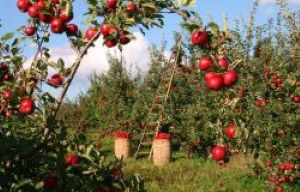 Raise awareness of the importance of sustainable food production.
Raise awareness of the importance of sustainable food production.
- CEWF6 Work with partners and communities to promote sustainable food.
What we will do:
- Actively promote sustainable food choices through working with communities, providing advice and signposting to good practice.
Achievements so far:
- Seasonal Food Calendar produced.

